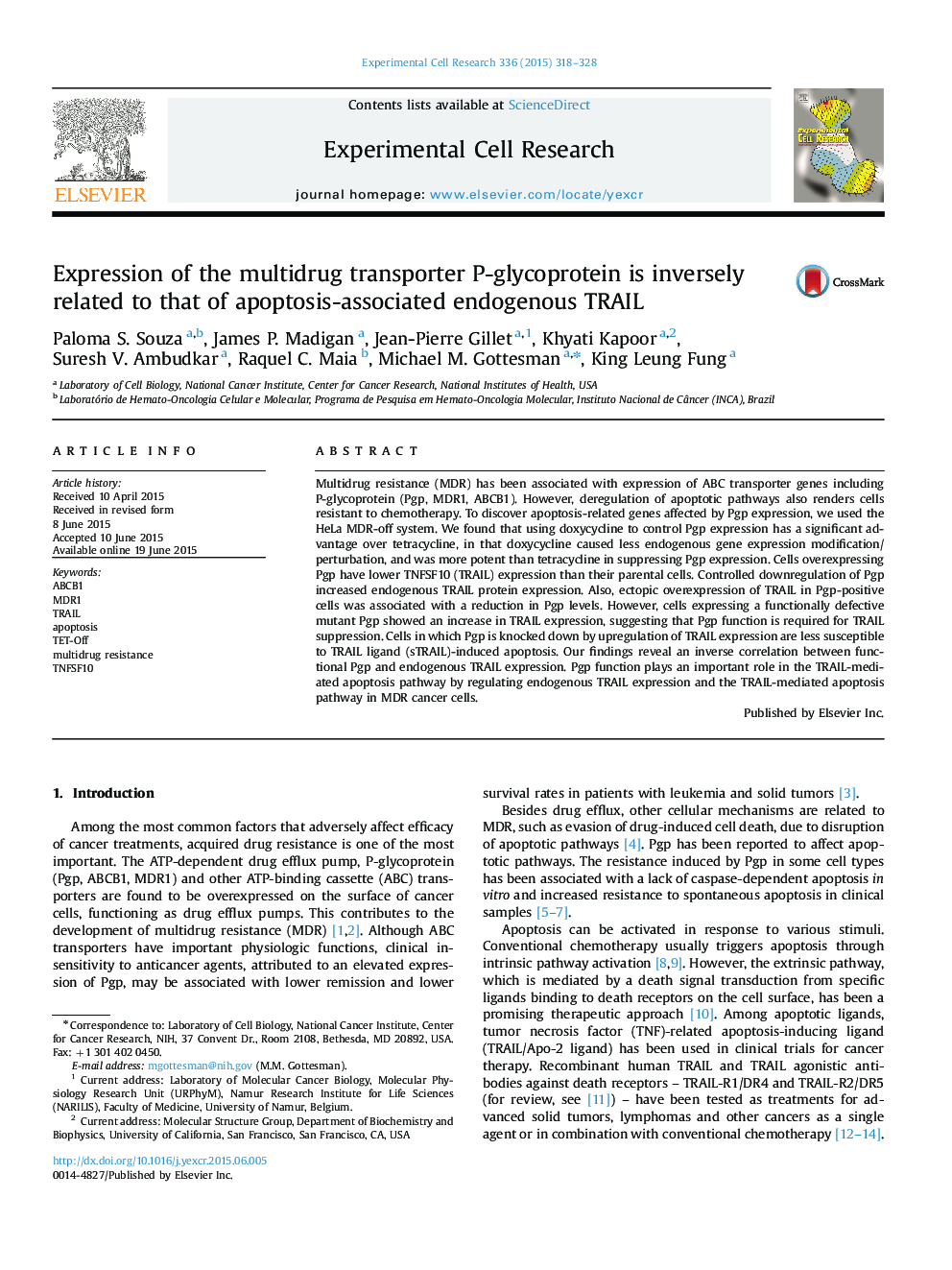| Article ID | Journal | Published Year | Pages | File Type |
|---|---|---|---|---|
| 2130177 | Experimental Cell Research | 2015 | 11 Pages |
•Gene expression of tetra-/doxy-cycline-treated TetOFF-Pgp cells was compared.•Doxycycline has less influence than tetracycline on Pgp downregulation.•TNFSF10 is inversely correlated to Pgp in Pgp-expressing cells.•Pgp activity is a critical requirement to suppress TNFSF10 expression.•Silencing of ABCB1 led to poorer sensitivity to TRAIL.
Multidrug resistance (MDR) has been associated with expression of ABC transporter genes including P-glycoprotein (Pgp, MDR1, ABCB1). However, deregulation of apoptotic pathways also renders cells resistant to chemotherapy. To discover apoptosis-related genes affected by Pgp expression, we used the HeLa MDR-off system. We found that using doxycycline to control Pgp expression has a significant advantage over tetracycline, in that doxycycline caused less endogenous gene expression modification/perturbation, and was more potent than tetracycline in suppressing Pgp expression. Cells overexpressing Pgp have lower TNFSF10 (TRAIL) expression than their parental cells. Controlled downregulation of Pgp increased endogenous TRAIL protein expression. Also, ectopic overexpression of TRAIL in Pgp-positive cells was associated with a reduction in Pgp levels. However, cells expressing a functionally defective mutant Pgp showed an increase in TRAIL expression, suggesting that Pgp function is required for TRAIL suppression. Cells in which Pgp is knocked down by upregulation of TRAIL expression are less susceptible to TRAIL ligand (sTRAIL)-induced apoptosis. Our findings reveal an inverse correlation between functional Pgp and endogenous TRAIL expression. Pgp function plays an important role in the TRAIL-mediated apoptosis pathway by regulating endogenous TRAIL expression and the TRAIL-mediated apoptosis pathway in MDR cancer cells.
